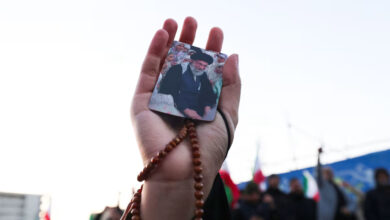A recent cable released by online whistle-blower Wikileaks suggests that while the Egyptian government views Iran as the country’s primary strategic threat, it believes ridding Israel of nuclear weaponry is of paramount importance in achieving regional stability.
The Mideast hosts tumultuous political landscapes and recurring conflict. In the cable, US Ambassador to Egypt Margaret Scobey describes the region as a “dangerous neighborhood.”
During American diplomat Dennis Ross’ April 2009 visit to Egypt, Iran’s nuclear threat dominated the international scene. While Egyptian authorities agreed with US containment of Iran, Egyptian Foreign Minister Ahmed Abul Gheit, according to the cable, predicted the US would learn, at its own costs, by early 2010 that Iran intended to continue its nuclear program.
Abul Gheit was accurate with that prediction but his expectations of an Israeli attack on Iran's nuclear facilities, also disclosed in the cable, proved false.
Furthermore, according to the cable, Abul Gheit argued America’s acceptance of Israel’s nuclear program and tolerance of Israeli “intransigence” would put the US in an awkward position with the Islamic world.
Mubarak stated that a Middle East Nuclear Weapons Free Zone represents the “only solution,” the cable says, which also reveals Abul Gheit asserted Egypt’s position that the US should push not only Iran, but also Israel, to advance the 1995 Nuclear Proliferation Treaty’s Middle East Resolution. The resolution calls for a Middle Eastern “zone free of nuclear weapons as well as other weapons of mass destruction.”
“While the US may not perceive a nuclear-armed Israel as a threat,” the minister claimed, according to the cable, “it is perceived that way throughout the Middle East.”
The latest batch of leaked cables includes many assertions that Egypt agreed with the US stance towards Iran even if it disagreed with how the US approached Israel.
Additionally, the leaks revealed the Egyptian government's belief that the fall of Saddam allowed Iran to widely exert its influence in the Middle East. Abul Gheit outlined Egypt’s steps to curb Hamas funding that now reaches US$25 million a month.
Hamas currently controls Gaza and is an offshoot of the Muslim Brotherhood, Egypt’s largest opposition movement.




